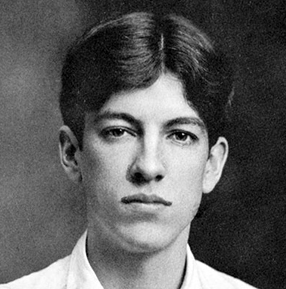Liebestod
I who, conceived beneath another star,
Had been a prince and played with life, instead
Have been its slave, an outcast exiled far
From the fair things my faith has merited.
My ways have been the ways that wanderers tread
And those that make romance of poverty—
Soldier, I shared the soldier’s board and bed,
And Joy has been a thing more oft to me
Whispered by summer wind and summer sea
Than known incarnate in the hours it lies
All warm against our hearts and laughs into our eyes.
I know not if in risking my best days
I shall leave utterly behind me here
This dream that lightened me through lonesome ways
And that no disappointment made less dear;
Sometimes I think that, where the hilltops rear
Their white entrenchments back of tangled wire,
Behind the mist Death only can make clear,
There, like Brunhilde ringed with flaming fire,
Lies what shall ease my heart’s immense desire:
There, where beyond the horror and the pain
Only the brave shall pass, only the strong attain.
Truth or delusion, be it as it may,
Yet think it true, dear friends, for, thinking so,
That thought shall nerve our sinews on the day
When to the last assault our bugles blow:
Reckless of pain and peril we shall go,
Heads high and hearts aflame and bayonets bare,
And we shall brave eternity as though
Eyes looked on us in which we would seem fair—
One waited in whose presence we would wear,
Even as a lover who would be well-seen,
Our manhood faultless and our honor clean.
This poem is in the public domain. Published in Poem-a-Day on November 9, 2025, by the Academy of American Poets.
The poem “Liebestod,” [German: “love-death”] which shares a title with the final aria of Richard Wagner’s 1859 opera Tristan und Isolde, appeared in Alan Seeger’s posthumously published Poems (Charles Scribner’s Sons, 1916). About Seeger’s life and work, William Archer, a Scottish author and theater critic, wrote in his forward to Poems, “From his boyhood upward, [Seeger’s] one passion was for beauty; and it was in the guise of Romance that beauty revealed itself to him. He was from the first determined not only to write but to live Romance, and when fate threw in his way a world-historic opportunity, he seized it with delight. He knew that he was dicing with Death, but that was the very essence of his ideal; and he knew that if Death won the throw, his ideal was crowned and consummated, for ever safe from the withering touch of time, or accidental soilure. If it had been given to Swinburne to fall, rifle in hand, on, say, the field of Mentana, we should have been the poorer by many splendid verses, but the richer by a heroic life-story. And would his lot have been the less enviable? Nay, surely much the more. That is the thought which may well bring solace to those who loved Alan Seeger, and who may at first have felt as an unmixed cruelty the cutting short of so eager, so generous, so gallant a life.”

